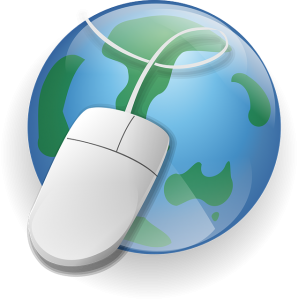The DofE is known primarily for its ‘real life’ activities, which have a tangible impact on the lives of both the participants, and their local communities. Up until recently, the internet played a relatively minor role in this programme, having been used mainly for promotional purposes. However, this has started to change, as the DofE committee, and the individual Award participants, are now beginning to see the many ways in which the online world can help them to develop and improve upon the existing programme.
 Those who are familiar with the DofE, such as Tunde Folawiyo, are probably aware that the integration of the internet into its operations is proving to be particularly beneficial in Africa. Take, for instance, Joram Otieno, a man who helps to run the DofE in Kenya. As an external relations coordinator, he is now managing the new online platform through which the Award committee are training leaders.
Those who are familiar with the DofE, such as Tunde Folawiyo, are probably aware that the integration of the internet into its operations is proving to be particularly beneficial in Africa. Take, for instance, Joram Otieno, a man who helps to run the DofE in Kenya. As an external relations coordinator, he is now managing the new online platform through which the Award committee are training leaders.
Otieno believes that this new way of teaching leaders will ‘revolutionise’ the DofE, by not only attracting more candidates, but also by making the monitoring of their training more efficient and effective. There will be far less physical management and paperwork processing to be done, and this in turn will free up the committee’s time, allowing it to expand the Award around other parts of Kenya.
Programme participants in South Africa are also making use of the internet to achieve their award goals. Duncan Vanniekerk is one such example. He noticed that there were several corporations that were claiming to have helped those living in disadvantaged communities, but in reality, had simply used ineffective one-day sponsorships to improve their public image.
He set about creating a project which would convince organisations to commit to helping people in these areas on a more long-term basis. The online platform which he developed, called ‘Sponsor Me’, enables groups to post their charitable and developmental initiatives on the net. Companies can then go through the website and select a project, which they can then sponsor for a specified amount of time. It had been very successful, and is a site which most people, including Tunde Folawiyo, are likely to have heard of.
Vanniekerks’ online efforts enabled him to complete his DofE Award, had a profound impact on many South African communities, and resulted in him continuing in this field of work after he finished the programme. His involvement inspired him to continue to focus on youth development, and led to him participating in a Youth Parliament session. He also join VOSESA (the Volunteer and Service Enquiry Southern Africa) as a youth leader, and attended one of their conferences, at which, he discussed the expansion of programmes around the country and, he said, became even more inspired about youth development.
